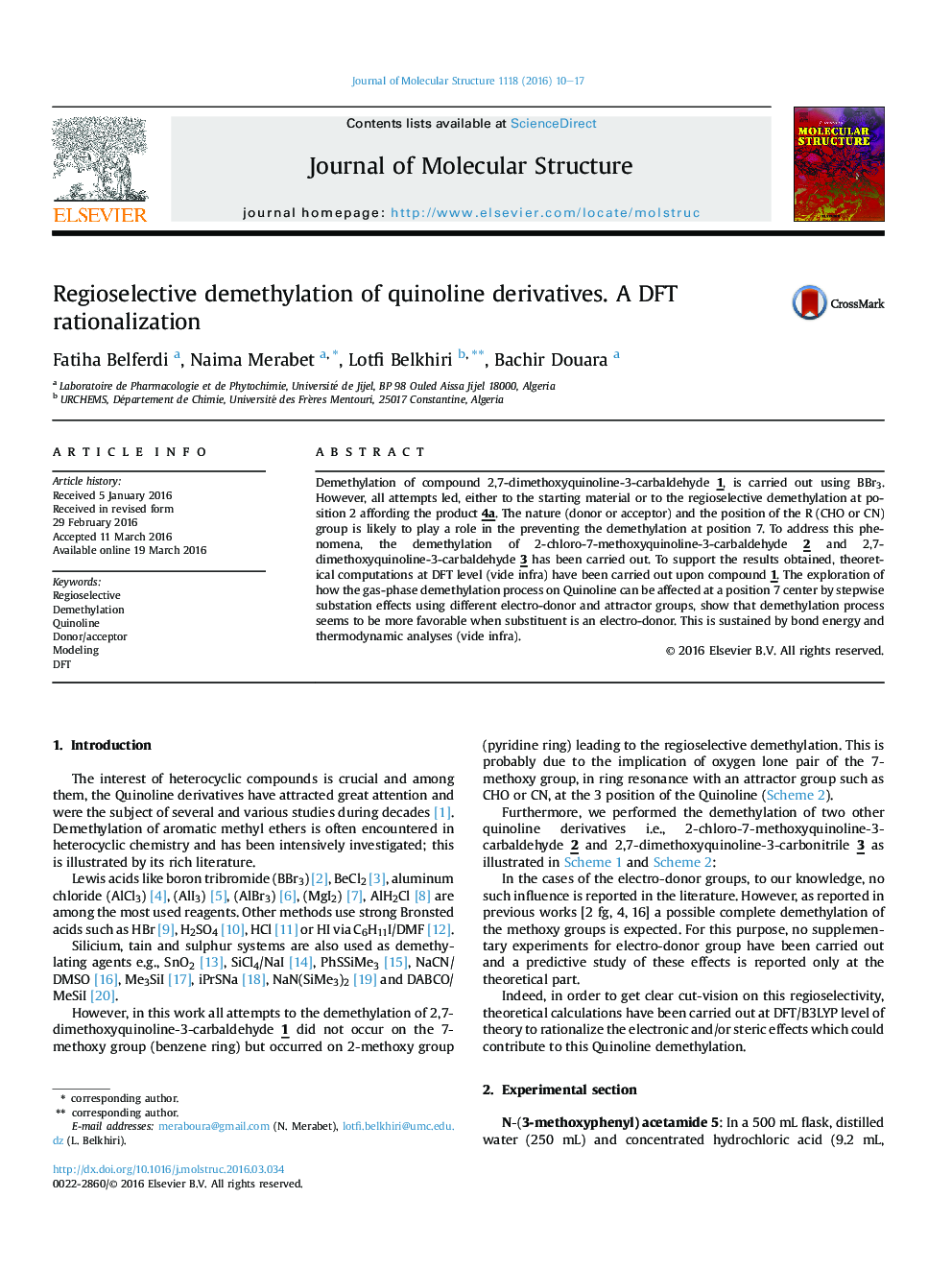| Article ID | Journal | Published Year | Pages | File Type |
|---|---|---|---|---|
| 1408785 | Journal of Molecular Structure | 2016 | 8 Pages |
•Regioselective demethylation of quinoline derivatives was achieved.•No demethylation at position 7 whatever conditions reaction used when R acceptor.•DFT/B3LYP computations have been carried out on different acceptor and donor groups.•Theoretical results are in good agreement with experimental achieved for R acceptor.
Demethylation of compound 2,7-dimethoxyquinoline-3-carbaldehyde 1, is carried out using BBr3. However, all attempts led, either to the starting material or to the regioselective demethylation at position 2 affording the product 4a. The nature (donor or acceptor) and the position of the R (CHO or CN) group is likely to play a role in the preventing the demethylation at position 7. To address this phenomena, the demethylation of 2-chloro-7-methoxyquinoline-3-carbaldehyde 2 and 2,7-dimethoxyquinoline-3-carbaldehyde 3 has been carried out. To support the results obtained, theoretical computations at DFT level (vide infra) have been carried out upon compound 1. The exploration of how the gas-phase demethylation process on Quinoline can be affected at a position 7 center by stepwise substation effects using different electro-donor and attractor groups, show that demethylation process seems to be more favorable when substituent is an electro-donor. This is sustained by bond energy and thermodynamic analyses (vide infra).
Graphical abstractFigure optionsDownload full-size imageDownload as PowerPoint slide
